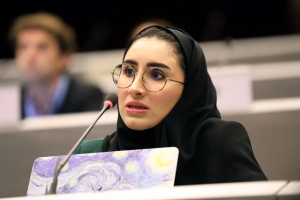The UN Body responsible for establishing a new global carbon market took a historic step reinforcing the protection of environmental and social human rights.

“This is a defining moment,” said Maria AlJishi, Chair of the Supervisory Body. “With the introduction of the Appeals and Grievances Procedure, we’re establishing new avenues to empower vulnerable communities and individuals, ensuring their voices are heard and their rights are upheld.”
The new safeguards allow people affected by activities under the mechanism to appeal decisions or file a grievance. This is a crucial step towards developing a new international carbon market that sets the benchmark for high integrity carbon credits.
“I feel a sense of relief that after years of debate on appeals, we have finally delivered a robust system; one that holds us accountable for our decisions and ensures the activities we approve are responsible for their impacts,” added Vice Chair Martin Hession. “In a world where the rule of law and human rights are under threat, I’m not a little proud that we have played our small part in upholding these fundamental principles.”
The Appeals and Grievances Procedure has immediately come into effect, marking a significant milestone in the operationalisation of the Paris Agreement Crediting Mechanism.
The Paris Agreement Crediting Mechanism (also known as Article 6.4) is a carbon crediting mechanism established under the Paris Agreement. It allows countries to raise climate ambition and implement national action plans more affordably. It identifies and encourages opportunities for verifiable emission reductions, attracts funding to implement them, and allows cooperation among countries and other groups to conduct and benefit from these activities.
The Paris Agreement Crediting Mechanism has a Supervisory Body tasked with developing and supervising the requirements and processes needed to operationalise it. This includes developing and/or approving methodologies, registering activities, accrediting third-party verification bodies, and managing the Article 6.4 Registry.
